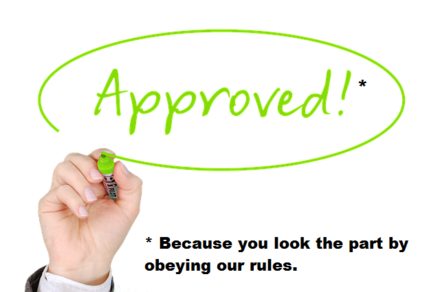Part 4 of 4, continued from here.
In Acts 10:44-48 we find the conversion of Gentiles with Cornelius, a centurion of the Italian Regiment. He was a devout man and feared God with all his household and prayed regularly and gave alms. This is another miraculous conversion since Cornelius and Peter were visited by an angel prior to Cornelius sending for Peter and he went as requested and while Peter preached, the Holy Spirit fell upon all who heard the word.
Peter’s crew were astonished as they heard them speak in tongues and glorify God. Then Peter commanded them to be baptized in the name of the Lord. (Acts 10:45-48)
Cornelius and his household’s conversion:
1. Faith in Jesus and
2. Reception of Holy Spirit (speaking in tongues)
3. Water baptism in the name of the Lord. (MacDonald, William p.1588)
A final group of believers, that was made up of disciples of John the Baptist conversion, was noted in Acts 19:1-7.
Paul was passing through the upper regions, came to Ephesus and found some of John the Baptists disciples. He asked if they had received the Holy Spirit since they believed. They replied that they hadn’t heard about the Holy Spirit. Paul told them that John baptized unto repentance, saying to believe on Him who would come after him, that is Christ Jesus. When they heard this they were re-baptized in the name of the Lord Jesus (they were re-baptized to show they were now disciples of Jesus) and when Paul laid hands on them, they received the Holy Spirit and they spoke in other tongues and prophesied (Acts 19:1-7).
The conversion of John the Baptist’s disciples:
1. They believed
2. They were re-baptized (in Jesus’ name)
3. The Apostle Paul laid hands on them
4. They received the Holy Spirit (speaking in tongues) (MacDonald, William p.1588)
So does this mean there are five ways of salvation? Of course not, salvation is and always will be on the basis of faith in the Lord Jesus and I think that during the early church transition, God varied the events connected with the recipients of that time. (MacDonald, William p.1587).
Throughout the book of Acts every baptism was in the name of Jesus or in the name of the Lord. Except for the Ethiopian Eunuch, there was nothing spoken when Phillip baptized him. So does this void Matthew 28:19? Not necessarily, this scripture is given when Jesus was telling the disciples that all power in heaven and earth had been given to him. He had all authority. Thereby baptizing in the name of the Father, Son and Holy Spirit is just another way of recognizing that Jesus has all authority. This is one of those mysteries that we accept on faith.
In Matthew 28:19, Christians are identifying with the name (singular) of God as their Father, Jesus as the Son and the Holy Spirit who comes to dwell inside the believer to lead and guide. Many call this the Trinity, meaning 3 persons. But Christians identify themselves with a Triune God with one name but three essences or personalities. (MacDonald, p. 1313)
Today, God is continuing to call out a people for his name from the Gentiles (Acts:15:14). Some denominations try to ‘add’ to the Gospel and how to be saved, requiring heavy burdens to be carried, strict dress codes and putting the law back into play, ignoring the fact that Jesus stated his yoke is easy and his burden is light. While others try to ‘take away’ from the Gospel and not do enough, just so happy-clappy and not preaching or teaching the words of Christ. There is always balance and moderation with God through his grace.
Therefore, what should be the order for today? I think the order for today is the same as it was for Cornelius and that is found in Acts 10:44-48:
1. They heard the word and believed with faith in Jesus Christ as Lord and Savior
2. Reception of Holy Spirit (some may speak in tongues or not)
3. Water baptism (in Jesus name or name of Father, Son, Holy Spirit) as an outward sign of being committed to Jesus Christ as Lord and Savior. But baptism does not save you! It is just an outward sign to all men that you are committed to Jesus.
“This is the order of events that prevails for Jew and Gentile alike in this dispensation, when God is calling out a people for His name.” (MacDonald, William p. 1614)
To the United Pentecostal Church, who like to put heavy burdens on their people and teach and preach using fear tactics, this way is much too easy. You need to be holy because God is holy, so they have holiness dress standards for their women to follow because she causes men to sin. She won’t be saved if she doesn’t follow them. And the men need to stand up and be a man and take the reigns of the marriage and be the boss of his family and enforcing the rules to his wife and children. Chaining them in bondage until they can’t wait to escape. It sounds unreal but I tell you this goes on in many UPC churches as well as other Oneness groups. If the way of salvation is easy, these churches will make it hard. But it’s not hard and Jesus paid the price on the cross for our salvation! I was under that Pentecostal bondage and abuse until I finally got myself out of it. I finally found true freedom in my faith in Jesus Christ. That is why it’s called Amazing Grace.
Note: The majority of what is included in this part comes from the Believer’s Bible Commentary by William MacDonald.
********
Shop at our Amazon store! As an Amazon Influencer, this website earns from qualifying purchases.




